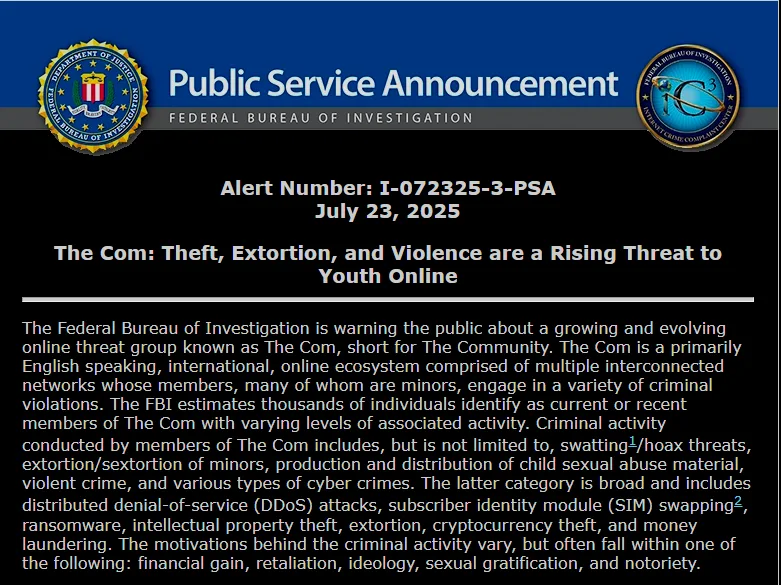X Takes Legal Steps on Criminal Crypto Scams Using Social Media

- X uncovered a bribery ring where scammers paid middlemen to reinstate banned accounts.
- The network operated on Instagram, TikTok, YouTube, Minecraft, and Roblox with links.
- Legal action is underway as X supports enforcement to protect its platform and user trust.
Social media platform X announced on Friday that it uncovered a network of users involved in bribery and crypto scams. These individuals allegedly paid middlemen to bribe employees in exchange for reinstating suspended accounts. According to the company, the accounts previously faced bans for fraudulent activity and policy violations.
The platform confirmed that legal action has already been launched against participants in the scheme and stated they are working directly with law enforcement authorities during the ongoing investigations. X stressed its absolute commitment to platform integrity and to addressing internal corruption.
The operation, however, extends far beyond X. Perpetrators also used other platforms, including Instagram, TikTok, YouTube, Minecraft, and Roblox, to promote fraudulent schemes. These connections reveal the scale and coordination of the network across the broader online ecosystem.
Links to Criminal Groups
X identified that the perpetrators are connected to wider organized groups, including a cybercriminal collective known as “The Com.” The FBI previously issued warnings about the increasing sophistication of this group’s tactics.

“The sophistication of ‘The Com’ criminal activity has grown over the last four years,” the FBI noted in a public statement. The agency added that members used complex methods to mask their identities, obscure financial transactions, and launder funds.
This development illustrates how criminal networks are not isolated to single platforms. Instead, they operate across multiple online services, often blending bribery, cyberattacks, and fraud to maintain influence. The Com has already been linked to SIM-swapping, ransomware, and large-scale identity theft cases.
Furthermore, sources also reported that the U.S. Department of Justice recently unsealed charges against a British teenager accused of more than 120 cyberattacks. Authorities tied him to the hacking group Scattered Spider, which itself has alleged ties to The Com. One attack included a 2024 breach of London’s transportation system.
Legal Measures and Past Incidents
X stated clearly that legal proceedings are now targeting both external scammers and any compromised employees. The company has not confirmed how many accounts were reinstated or whether bribes reached staff members. Investigators say the use of intermediaries instead of direct approaches suggests a structured conspiracy.
While X has pledged full transparency, its owner, Elon Musk, has yet to comment publicly on the incident. The announcement follows a history of crypto-related exploits on the platform. In 2020, when it was still known as Twitter and owned by Jack Dorsey, criminals hacked high-profile accounts to push a Bitcoin scam.
Victims included Barack Obama, Apple, Uber, and Kanye West. Last year, another wave of hacks targeted accounts to promote a Solana-based meme token. High-profile victims included Lenovo’s India division, filmmaker Oliver Stone, and soccer player Neymar Jr.
These repeated occurrences show that scammers make every effort to exploit platforms with large crypto-based user populations. While stronger safeguards represent a hurdle, attackers often adapt to internal weakness or external distraction to carry out their attacks.
Related: FBI Ends Probe Against Kraken Co-Founder Powell, Returns Seized Devices
A Coordinated Challenge Across The Industry
Recent disclosures and follow-ups reveal that crypto scams have graduated into a wider strategy of multi-platform manipulation. Fraudsters now attempt to influence enforcement systems, sometimes even by bribing internal employees, highlighting the growing sophistication of these attacks.
Industry spectators comment that the current case is beyond individual scams and rests in the category of structural threats. Coordinated networks threaten user security and institutional credibility, which in turn compels platforms to adopt systems of greater accountability.
The litigation will further spur demands for tighter collaboration between social media platforms, regulators, and law enforcement agencies. Prevention, quick reaction, and transparency remain the core elements necessary to root out cybercrime networks that now mix bribery, social media abuse, and financial fraud.




